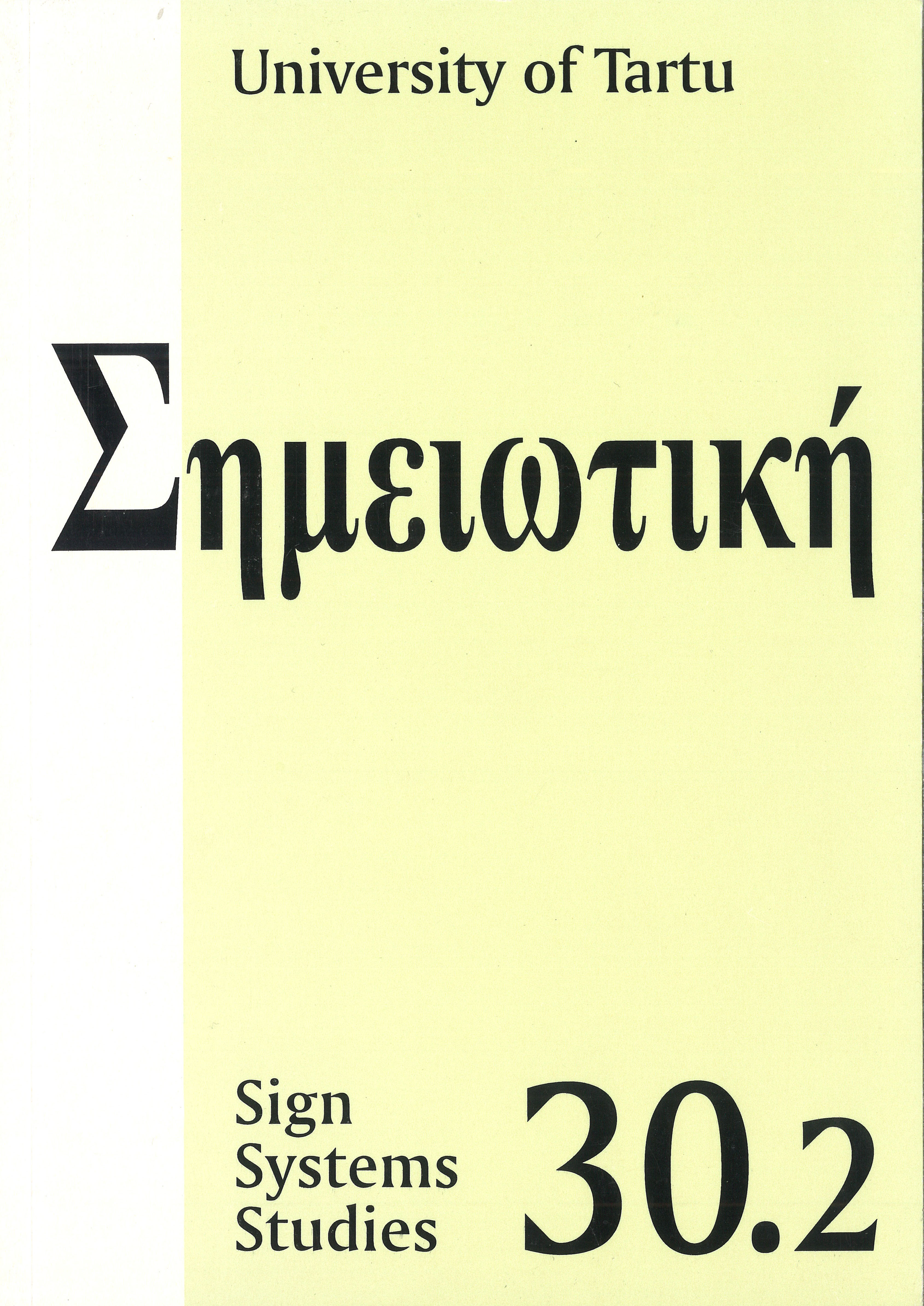Is cultural logic an appropriate concept? A semiotic perspective on the study of culture and logic
DOI:
https://doi.org/10.12697/SSS.2002.30.2.06Abstract
It is argued that (a) the question of ‘cultural logic’ is a valid inquiry for disciplines seeking to comprehend and compare mental processes across cultures, and (b) semiotics, as the science of studying signs and signification, is an appropriate means of approaching the question of cultural logic. It is suggested that a shift needs to be made in studying reasoning across cultures from the traditional value-oriented methods of judgment to a meaningoriented assessment. Traditional methods of cross-cultural comparison are suggested to be flawed in their attempt to develop a psychological account of why different cultural societies can draw different conclusions from ‘similar’ data, because they typically do not take into account the culturally-specific processes of ‘meaning’ and semiosis. These processes, it is argued, cause input data to develop differentially from one semiotic context to another. In other words, before reaching the cognitive processing level data is already shaped by the semiotic context, thus what is processed cognitively by two individuals in two cultural/semiotic contexts is no longer ‘the same.’ A semiotically conceived notion of cultural logic is therefore a crucial factor in any cross-cultural study of cognitive and psychological systems.


